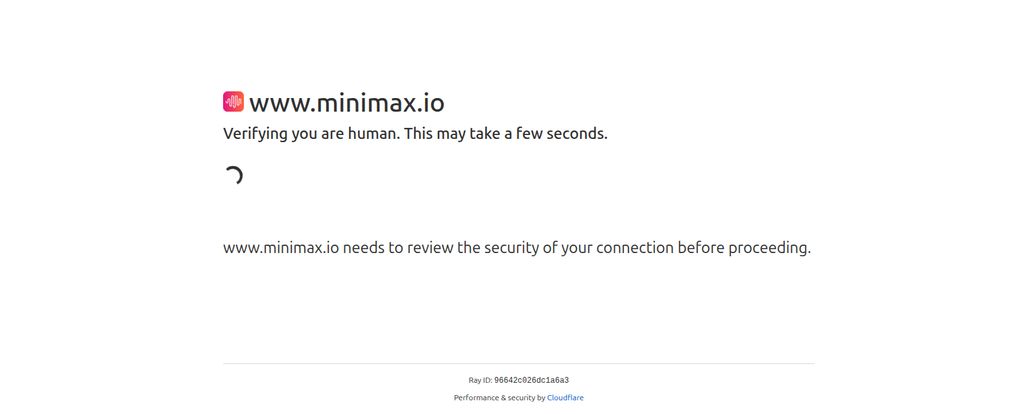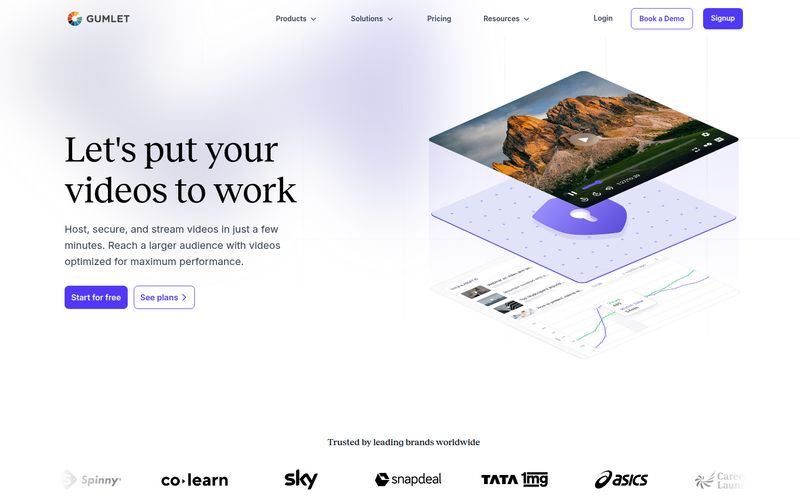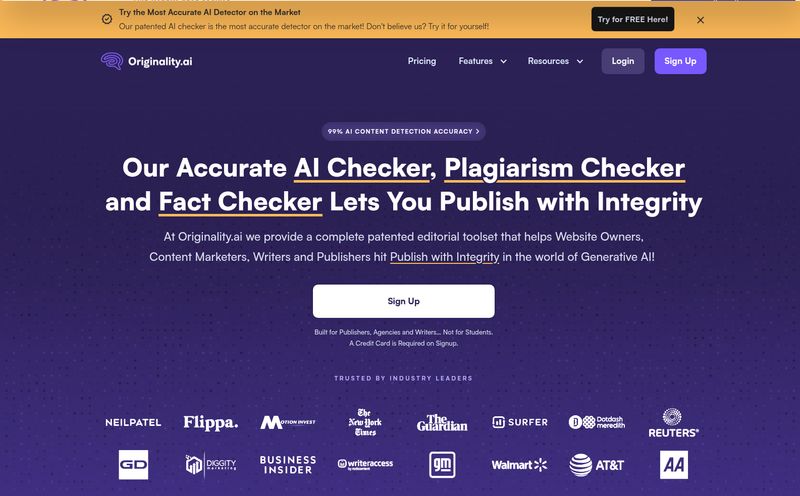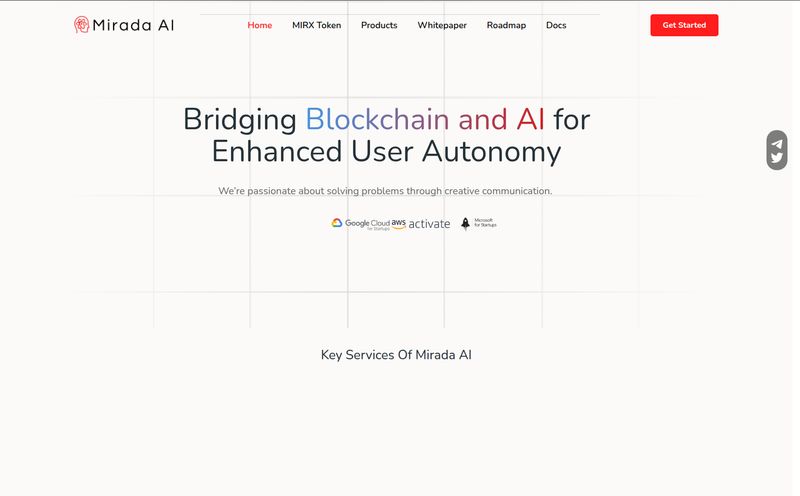If you've spent any time in the digital marketing or content creation space over the last couple of years, you know the AI voice 'arms race' is on. It feels like every other week there's a new player claiming to have the most 'human-like' text-to-speech (TTS) on the market. We've gone from robotic Stephen Hawking-esque voices to AI that can genuinely fool you on a podcast. It's wild. And as an SEO and traffic guy, I'm always looking for tools that can streamline content production without sacrificing quality.
So, when I heard about MiniMax Audio, my curiosity was definitely piqued. The claims were big: ultra-realistic voices, voice cloning, and a massive character limit. On paper, it sounded like a potential game-changer. But, as we all know, 'on paper' and 'in practice' are often two very different things.
I decided to take it for a spin. And, well, let's just say my experience wasn't quite what I expected. More on that in a bit...
So, What is MiniMax Audio Supposed to Be?
Before I get into my little adventure, let's cover the basics. MiniMax Audio is an AI audio platform built on what they call their advanced Speech-02 models. The goal is to create incredibly lifelike speech across a bunch of different languages, voices, and even accents. Think of it as a high-end AI voice actor at your fingertips.
Unlike some of the simpler TTS tools you might have played with, MiniMax isn't just about reading a sentence or two. It's designed for heavy-duty work. We're talking about the ability to process and read entire files, URLs, and long-form text. This is the kind of stuff that gets content creators—from YouTubers to audiobook producers—very excited.

Visit MiniMax Audio
The Promised Features That Sounded So Good
The feature list for MiniMax Audio is what really grabbed my attention. It ticks a lot of the boxes that professionals are looking for in a modern AI voice generator.
Hyper-Realistic Text-to-Speech (TTS)
This is the foundation of any tool like this. The promise of "ultra-realistic AI voices" is the main draw. We're all tired of the monotonous, slightly-off cadence of older TTS. The goal is warmth, inflection, and emotion—the little things that make speech human. MiniMax claims to deliver this, supporting multiple languages which is a massive plus for anyone with a global audience. I've used tools like ElevenLabs and seen how good this tech can get, so my standards were pretty high.
Your Voice, But AI: The Voice Cloning Capability
Okay, this is where things get a little Black Mirror, but in the best way possible. Voice cloning is the ability to create a digital replica of a specific person's voice. The potential applications are huge. Imagine being able to narrate your own blog posts or create personalized audio messages at scale, all without having to step in front of a microphone every single time. It ensures brand consistency in a way that stock voices just cant. Of course, this technology comes with its own set of ethical questions, but from a pure content creation standpoint, it's an incredibly powerful feature.
Handling the Long Haul: A 200,000 Character Limit
Now this, this is a big deal. Anyone who has tried to convert a long article, a chapter of a book, or a research paper into audio knows the pain. Most platforms have pretty restrictive character limits, forcing you to break your text into small, awkward chunks and then stitch the audio files together. It’s tedious. A 200,000 character limit is massive. For context, that's roughly 30,000-35,000 words. You could convert an entire novella in one go. This feature alone would make MiniMax a serious contender for long-form content creators.
Cleaning Up the Mess with Voice Isolation
This was another interesting one on the list. Voice Isolation is a feature that suggests it can separate vocal tracks from background noise. This could be useful for cleaning up existing recordings or perhaps isolating the vocal style from a sample for cloning. The information on this is a bit thin, so it's hard to know how effective it is. Is it like Adobe Podcast's Enhance Speech, or something else entirely? A question I was eager to answer.
The Big Question Mark: What Does MiniMax Audio Cost?
So, I'm scrolling through the features, getting more and more interested, and I start looking for the pricing page. And I look. And I look some more. And... nothing. Nada. Zilch.
There is no public pricing information for MiniMax Audio. Honestly, this is a huge pet peeve of mine. It usually means one of two things: it's an enterprise-only solution with a "contact us for a demo" price tag that would make your wallet weep, or it's still in a private beta phase. Either way, the lack of transparency is frustrating for small businesses and solo creators who just want to know if they can afford the tool. It's a barrier to entry, simple as that.
My Attempt to Go Hands-On... And the Digital Wall I Hit
Alright, so no pricing. Not ideal, but I figured I could at least sign up for a free trial or explore the interface. So I navigated to `minimax.io`, ready to dive in.
And I was met with this:
"Verifying you are human. This may take a few seconds."
A standard Cloudflare check. No problem, I'm human (mostly). I've done this a million times. But then... it just spun. And spun. After what felt like an eternity, I was greeted with a stark, unhelpful "Application error."
It was like being promised a test drive in a brand-new car, and when you show up to the dealership, it's just... boarded up. I tried again. Different browser. Cleared my cache. Same result. As of this writing, I can't actually access the MiniMax Audio platform. It's a tough pill to swallow when you're trying to write a review. All these amazing features, and they're locked behind a digital door that won't open.
The Verdict: A Promising Ghost in the Machine?
So, where does that leave us with MiniMax Audio? It's a tough call. On one hand, the feature set is genuinely impressive. The long character limit, voice cloning, and multi-language support put it in the same league as the top-tier AI voice generators.
On the other hand, the platform is currently inaccessible and the pricing is a complete mystery. It's hard to recommend a tool that you can't actually use or even know the cost of. It feels less like a product ready for the public and more like a tech demo that isn't quite ready for primetime.
My gut feeling? This is probably an API-first company targeting large enterprise clients, and the public-facing site isn't their priority. That, or they're having some serious technical difficulties. Either way, it's not a great look for attracting the growing market of individual creators and small businesses.
Frequently Asked Questions about MiniMax Audio
- What is supposed to make MiniMax Audio different from other TTS tools?
- Its biggest claimed advantage is the massive 200,000-character limit for a single text input, which is significantly more than many competitors. The combination of this with voice cloning and multi-language support makes it very appealing for long-form content.
- Can I clone my own voice with MiniMax Audio?
- Yes, according to their feature list, voice cloning is a core part of the platform. This would allow you to create a digital version of your own voice for various audio projects.
- How much does MiniMax Audio cost?
- That's the million-dollar question. There is no pricing information available on their website, which is a significant drawback for potential users. You can't budget for a tool if you dont know the cost.
- Is MiniMax Audio good for creating audiobooks?
- In theory, yes. The high character limit makes it perfectly suited for processing entire book chapters at once, which could be a huge time-saver for authors and publishers looking to create audio versions of their work.
- Why can't I access the MiniMax Audio website?
- As of our last check, the website was experiencing technical issues, stuck behind a Cloudflare verification loop and showing an application error. This may be a temporary problem, but it currently prevents new users from signing up or using the service.
Final Thoughts
I really want to be excited about MiniMax Audio. The potential is clearly there. The feature set, if it works as advertised, could solve some major headaches for content creators. But for now, it remains a ghost in the machine—a list of tantalizing promises with no way to verify them.
I'll be keeping an eye on this one. If the doors ever open and the pricing becomes clear, I’ll be first in line to give it a proper test. Until then, it's a powerful reminder that a great idea is only as good as its execution and accessibility. For now, I'll be sticking with my trusted, and functional, set of tools.
Reference and Sources
- Information about ElevenLabs for comparison: https://elevenlabs.io/
- General information on CAPTCHA and website security: https://www.cloudflare.com/learning/bots/what-is-a-captcha/



